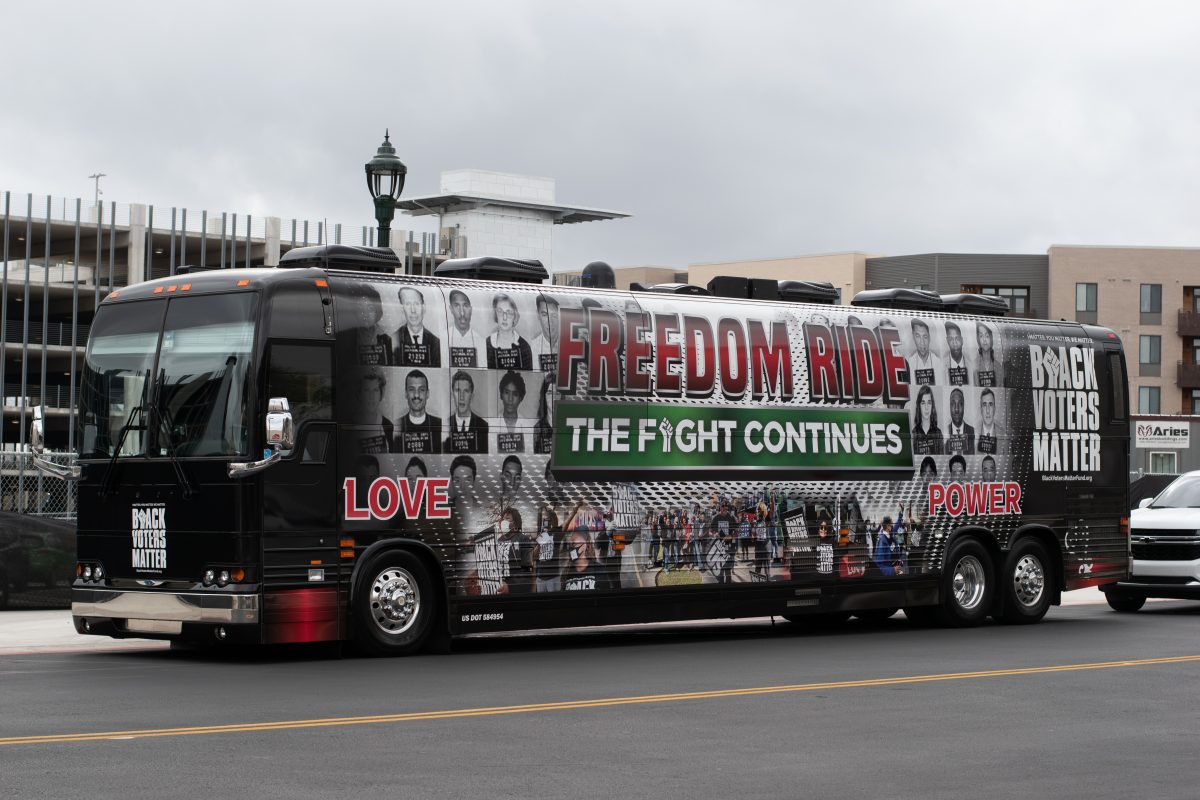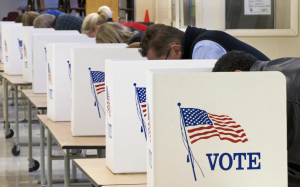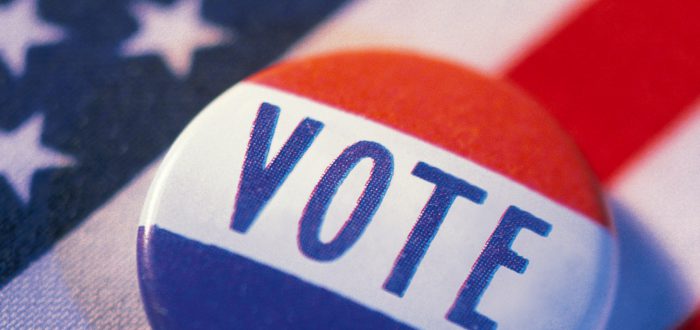On February 16, 2022, organizers from Black Voters Matter visited Austin Community College’s Highland campus as part of their Campus Blackout Tour. The outreach tour across Texas aimed to educate and register young voters ahead of the recent March 2 primary election. The weeklong bus tour began in Houston, Texas on February 14 and ended in Tyler, Texas on February 18.
Story by Ky Duffey
Edited by Pete Ramirez
“Are y’all registered to vote yet?” Black Voters Matter senior organizing manager, Dionna La’Fay said to two ACC students as they walked by.
La’Fay and her colleagues stood in the breezeway outside ACC’s Highland campus engaging with students and handing out flyers with instructions on how to register to vote.
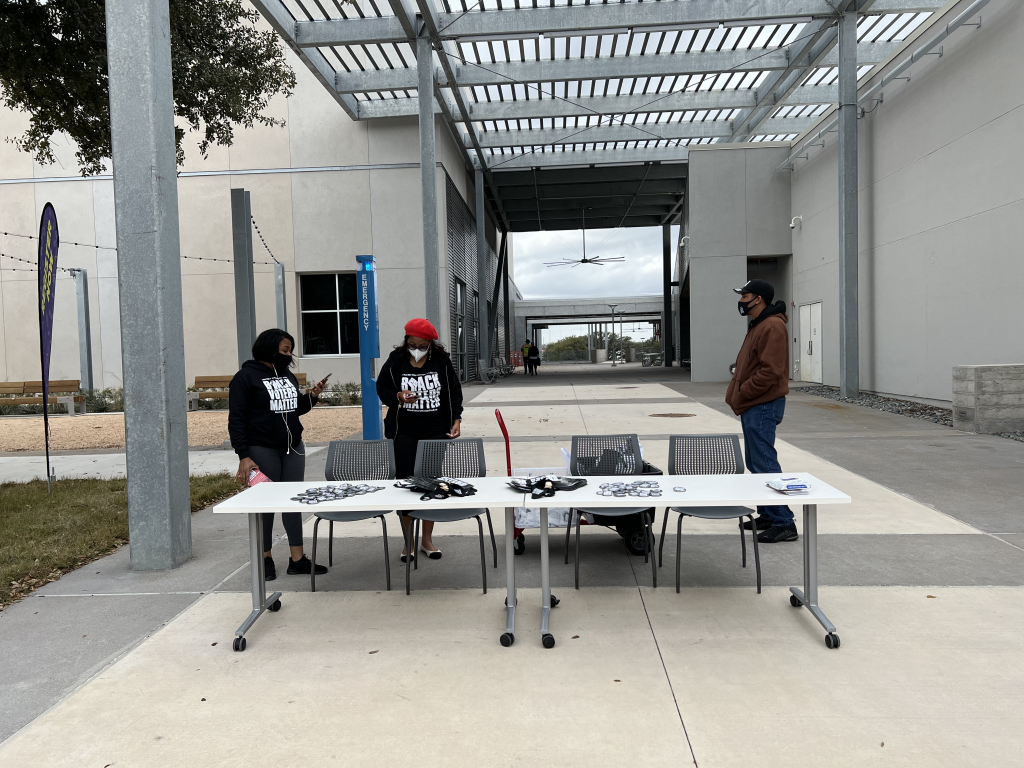
A non-profit organization that focuses on voting rights and community empowerment, Black Voters Matter stopped in Austin on the third day of their bus tour. While in town, the tour made stops at ACC’s Riverside campus and Huston-Tillotson University, a historically black college.
Traveling around the state in a bus wrapped in the photos of members of the Freedom Riders movement of 1961, which includes the late congressman John Lewis, the organization also held voter registration events in San Antonio, Dallas and Fort Worth.
“While these conversations are necessary for traditional 4-year university students, the 2-year college students are the folks that will be engaging the workforce sooner,” La’Fay said. “So it’s better for us to educate them and teach them how to advocate for themselves now while we still have their attention.”
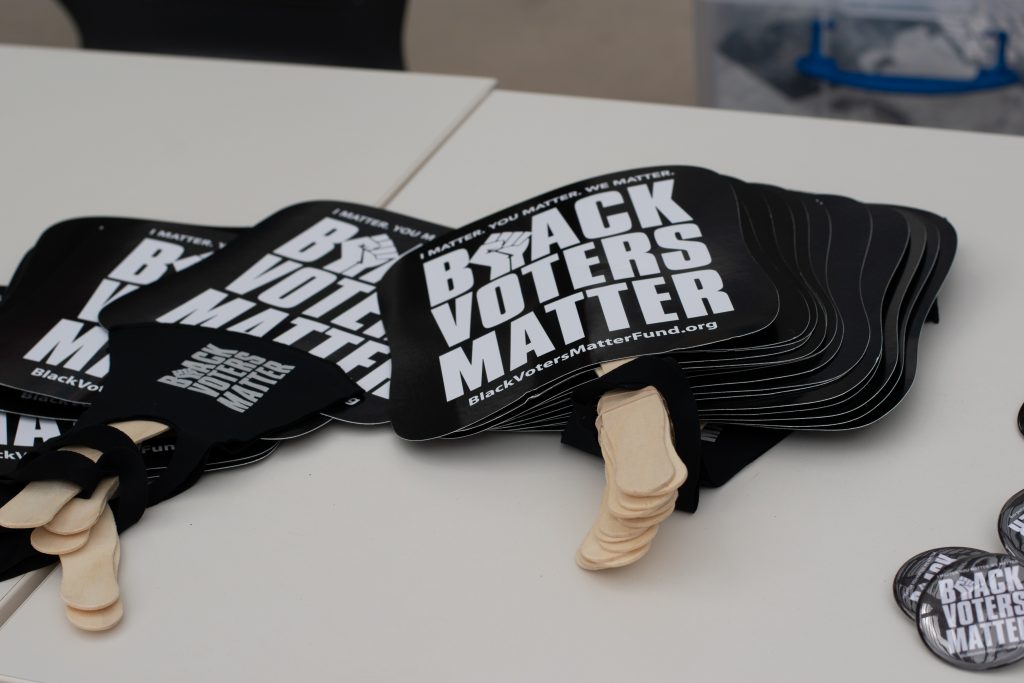
Black Voters Matter was founded in 2016 by LaTosha Brown and Cliff Albright with the goal of increasing power in communities by focusing on voter registration, getting out the vote, independent election-related expenditures, and organizational development and training for other grassroots groups. The organization bases itself in Atlanta, Georgia, yet as of 2020 has expanded to Florida, South Carolina, Tennessee, Louisiana, North Carolina, Pennsylvania, Alabama and Mississippi.
The bus tours were created to allow the organization to travel across the Southern United States in order to galvanize voters and stop voter suppression, especially in swing states.
During the 2018 elections, Senator Ted Cruz narrowly defeated Democratic favorite, Beto O’Rourke, by less than 3%. Last year during the 2020 presidential election, Donald Trump won Texas by a 5.58 point margin, the narrowest for a Republican presidential candidate in the state since 1996.
Political experts see this as an indicator of Texas edging closer to becoming a swing state. Black Voters Matter view it as an opportunity to challenge more Texans to become engaged in the political process and vote.
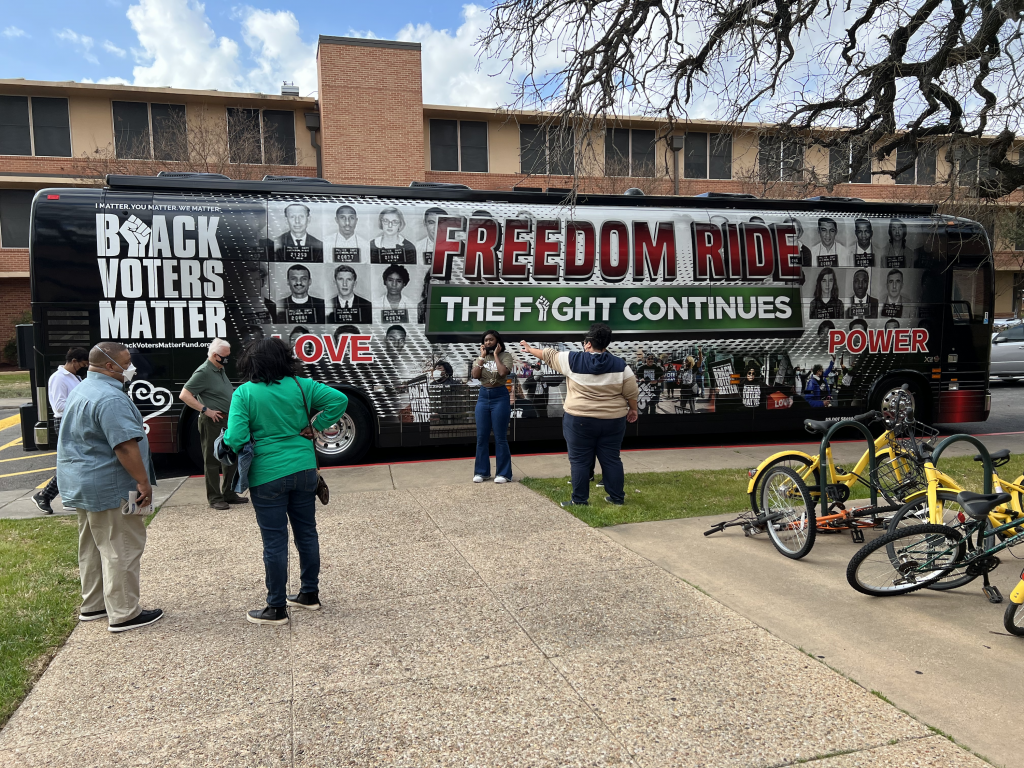
“Our goal with the bus tours is to remind students how important and easy it is to vote and engage before the primaries,” La’Fay said. “Voting is one aspect to building power.”
With the recent implementation of the controversial new Texas voting law, SB 1, voting rights organizations like Black Voters Matter are galvanized in their efforts to expand the electorate in the state.
“Organizations like the Texas Civil Rights Project have been amazing with making sure that we’re educated on the changes,” says La’Fay. “It’s not stopping anything we had already planned.”
For ACC students who want to get more involved with the electoral process, La’Fay recommends a few things:
- Look into state boards, commissions and precinct chairs because some of them help to create local policy
- Become a poll worker. According to La’Fay, several polling locations were closed in 2020 because they had staffing shortages.
- Join organizations like Black Voters Matter that work on voter registration and civic education in your community.
“As you learn, share what you’re doing with the folks around you so we can build power together,” La’Fay said.
You can find more information about Black Voters Matter at blackvotersmatterfund.org or by visiting their Instagram page @blackvotersmtr.


